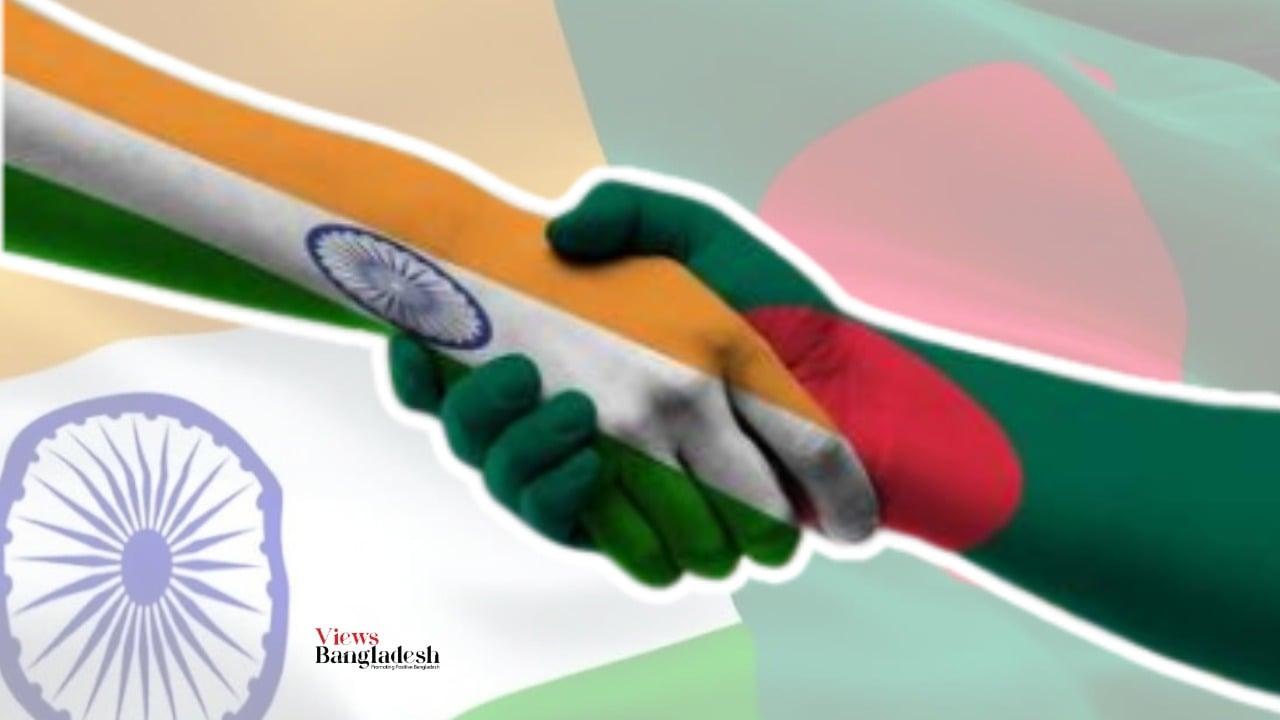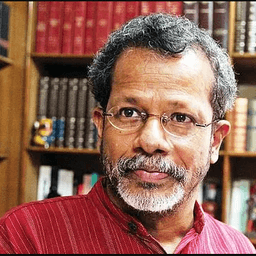Why is bilateral relationship between Bangladesh and India so important?

The bilateral relationship between Bangladesh and India essentially began in 1971 when the Pakistani military initiated a genocidal crackdown on the innocent people of Bangladesh. It was precisely during that time that the two nations' diplomatic ties took root. As news of the genocide in Bangladesh reached Kolkata, patriotic songs were broadcast on the radio. At that time Calcutta Betar Kendra broadcast the news of brutal massacre by Pakistani forces in Bangladesh. The new journey of bilateral relations between Bangladesh and India started with the news of this massacre in Bangladesh. In fact, Bangladesh and India have thousands of years of relationship; it is a different matter; But the new phase of bilateral relations between Bangladesh and India started in 1971.
During that time, one crore (ten million) refugees sought shelter in India from Bangladesh. The Indian government managed arrangements for their stay and sustenance. Additionally, India provided direct assistance during the Liberation War. I was a ninth-grade student when the Liberation War began. I left my parents and sought shelter in Agartala. On the first night in Agartala, I had to sleep on the pavement because there was no accommodation available due to the influx of refugees from Bangladesh. Eventually, I found shelter around 3am as there was a shortage of places for those seeking refuge from Bangladesh. During that time, the people of India generously assisted the refugees from Bangladesh. The bilateral diplomatic relations between Bangladesh and India started evolving from that point onward. Subsequently, traversing various ups and downs, the bilateral relationship between Bangladesh and India has progressed and matured over time. Relations between two neighboring countries may not always flow in a positive direction. There have been many problems in the bilateral relations between Bangladesh and India. Again those problems have been solved once. This is how bilateral relations are progressing.
During the War of Independence, a substantial number of Indian forces were stationed in Bangladesh. The matter of repatriating them to their homeland was of paramount importance. After the return of Bangabandhu Sheikh Mujibur Rahman to his homeland, one significant task was repatriating the Indian forces stationed in Bangladesh. Due to Bangabandhu's foresight, the process of repatriating the Indian forces from Bangladesh to their country took place in a very short period.
In many instances, the repatriation of foreign forces takes a considerable amount of time. However, this did not happen in the case of Bangladesh. In this regard, the Indian authorities deserve praise. They realized that if the withdrawal of the forces could be expedited, it would not provide an opportunity for anyone to politicize the issue. Consequently, the conducive environment for fostering excellent relations between the two countries created during the Liberation War was utilized effectively.
The presence of Indian forces in Bangladesh had delayed recognition from several countries. However, obtaining membership in the United Nations (UN) was a critical matter. By 1974, these issues were resolved in such a way that Pakistan also recognized Bangladesh. There are no more obstacles in getting membership of the United Nations. Because Indian soldiers were still stationed in Bangladesh; But when Pakistan recognized Bangladesh, China did not give any more obstacles. Bangladesh got membership of United Nations.
There exist various issues between two neighboring countries, and overcoming these problems often requires advancing bilateral relations. Given that India actively supported Bangladesh during its struggle for independence, our bilateral relationship has consistently progressed positively. In 1971, Bangladesh gained independence, and during that crucial time, the world was largely divided into two blocs due to the Cold War, with armed conflicts occurring. India, along with the Soviet Union and their allies, morally supported Bangladesh's quest for freedom. Therefore, after independence, Bangladesh's bilateral relations with these countries became very close. But the historical economic structure of Bangladesh is mainly related to the western world.
There was a huge food shortage in Bangladesh then. The US was a supporter of Pakistan in the 1971 war. This created a problem. At the same time, the United States took initiatives to develop bilateral relations with China. US Secretary of State Henry Kissinger made a secret visit to China. This tour is organized by Pakistan. Due to the absence of the United States in Bangladesh, even those who were staunch allies may not have developed a close friendship with Bangladesh. As a Muslim country, Pakistan had good relations with the Muslim countries of the Middle East. As a result, Bangladesh's relations with the Middle East could not improve much. As a result, Bangladesh has to face problems in getting recognition from the countries of the Middle East, including the friendly countries of the United States. However, at that time i.e. post-independence, India has helped Bangladesh in various ways from behind in the recognition and internationalization.
In 1974, through participation in the United Nations General Assembly and Bangabandhu Sheikh Mujibur Rahman's speech, Bangladesh sought to address challenges in gaining international recognition. However, the tragic event on August 15, 1975, when Bangabandhu Sheikh Mujibur Rahman was assassinated, brought a sudden shift in Bangladesh's international relations. Most members of the Bangabandhu family were killed during this incident, leading to a significant transformation in the country's foreign relations. The assassination marked a turning point in Bangladesh's international relations. While Bangabandhu Sheikh Mujibur Rahman was alive, there were occasional differences with India on certain issues. One prominent issue that emerged was the delineation of the border, especially concerning the demarcation of territorial boundaries.
In July 1974, Bangladesh finalized the border demarcation agreement; however, in December of the same year, India expressed its desire to reassess the terms of the agreement. India stated that it would not conclude the border demarcation agreement until the issue of enclaves was resolved through mutual exchange. Bangladesh had explicitly mentioned in the agreement that the border demarcation would be signed, and subsequently, the exchange of enclaves would take place.
Due to the reluctance of India to sign the border demarcation agreement without the simultaneous exchange of enclaves, Bangabandhu Sheikh Mujibur Rahman expressed some reservations. Additionally, around the same time, issues related to the Farakka Barrage also presented some challenges in the bilateral relations between Bangladesh and India.
Issues related to the distribution of Ganges water and curbing cross-border crime were sources of uncertainty in Bangladesh-India bilateral relations. There was some tension in the bilateral relations between Bangladesh and India on some such issues. After 1975, Bangladesh-India bilateral relations experienced a slight decline after the military government assumed state power in the country. It took a long time to ease the tension.
Currently, Bangladesh and India share excellent bilateral relations. Since Prime Minister Sheikh Hasina assumed office for the second term in 2009, the diplomatic ties between Bangladesh and India have seen significant development. Prime Minister Sheikh Hasina visited India in 2010, and this visit marked the beginning of enhanced bilateral relations between the two countries.
During her visit, both nations initiated new measures to strengthen their bilateral ties. Bangladesh and India have been working on fostering connectivity and improving bilateral economic relations, especially in the field of investment. Extensive groundwork has been laid in anticipation of the improvement of bilateral economic ties. As a result, the new government can quickly complete the development of bilateral relations between Bangladesh and India.
Prior to 2009, the existing bilateral relations between Bangladesh and India had several problems, especially when the BNP government was in power. The biggest problem was the North-Eastern states of India on the question of security. India has been alleging that the leaders of separatist organizations in the northeastern states of India were receiving asylum from Bangladesh. Members of the United Liberation Front of Assam (ULFA) roamed the border areas of Bangladesh.
There have been allegations that individuals in Bangladesh opened bank accounts for the purpose of storing funds. In addition, an incident in the Chattogram Hill Tracts involved the seizure of 10 trucks carrying arms. Some believe that these weapons were intended for separatist elements in India. When combined, these incidents raise concerns about the security situation in the Northeastern states of India. India perceives that the use of Bangladesh's territory is obstructing the security of their Northeastern states. One of the major tasks of the prime minister after assuming power in 2009 was to adopt the 'Zero Tolerance' policy in this regard. The prime minister announced that no work will be allowed to use the soil of Bangladesh to disturb the security of any other country. As a result of this initiative of Bangladesh, India got great relief. The security of their northeastern states was preserved to some extent.
India feels that the Awami League government not only talks about maintaining the unity and integrity of Bangladesh but has also demonstrated its commitment through actions that they do not interfere in anyone else's internal affairs. Bangladesh respects the integrity of India and has proved it in action. On the contrary, Bangladesh will also seek various benefits from India. The issue of security in the northeastern states of India has been the most important contributor to the development of relations between the two countries. Then there was a great relationship of connectivity. A major demand from India was to ensure access to their northeastern states through Bangladesh. The new journey of development of bilateral relations between Bangladesh and India started in 2009 and is currently at a great height.
One thing must be remembered here, after independence the foreign policies or policies that were made during the father of the nation Bangabandhu's tenure were widely appreciated everywhere. The motto of that foreign policy was 'friendship to all, enmity to none'. The present government has shown the real reflection of that foreign policy. Bangladesh does not interfere in the internal politics of any country and does not show hostility towards anyone. Bangladesh continues to maintain excellent bilateral relations with India. At the same time, Bangladesh has excellent relations with China. Especially China is currently one of the main economic partners of Bangladesh. Bangladesh also has excellent bilateral relations with Russia. Similarly, Bangladesh has excellent bilateral relations with the United States and Japan. Bangladesh has managed to convey to the allied countries that I have economic relations with you. There is no difficulty in establishing or maintaining economic relations with anyone. Bangladesh does not lie within any fault lines of insecurity, and India has also come to understand this fact. Consequently, Bangladesh has established exemplary initiatives or instances in its bilateral relationship with India. However, there are still some lingering issues between Bangladesh and India. It is hopeful that these issues can be resolved through discussions and dialogue.
Author: Professor, international relations expert and political analyst
Transcribe: M A Khaleque


Leave A Comment
You need login first to leave a comment